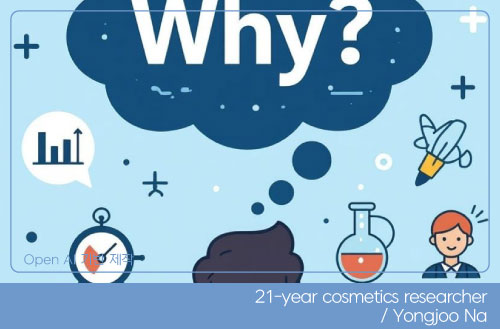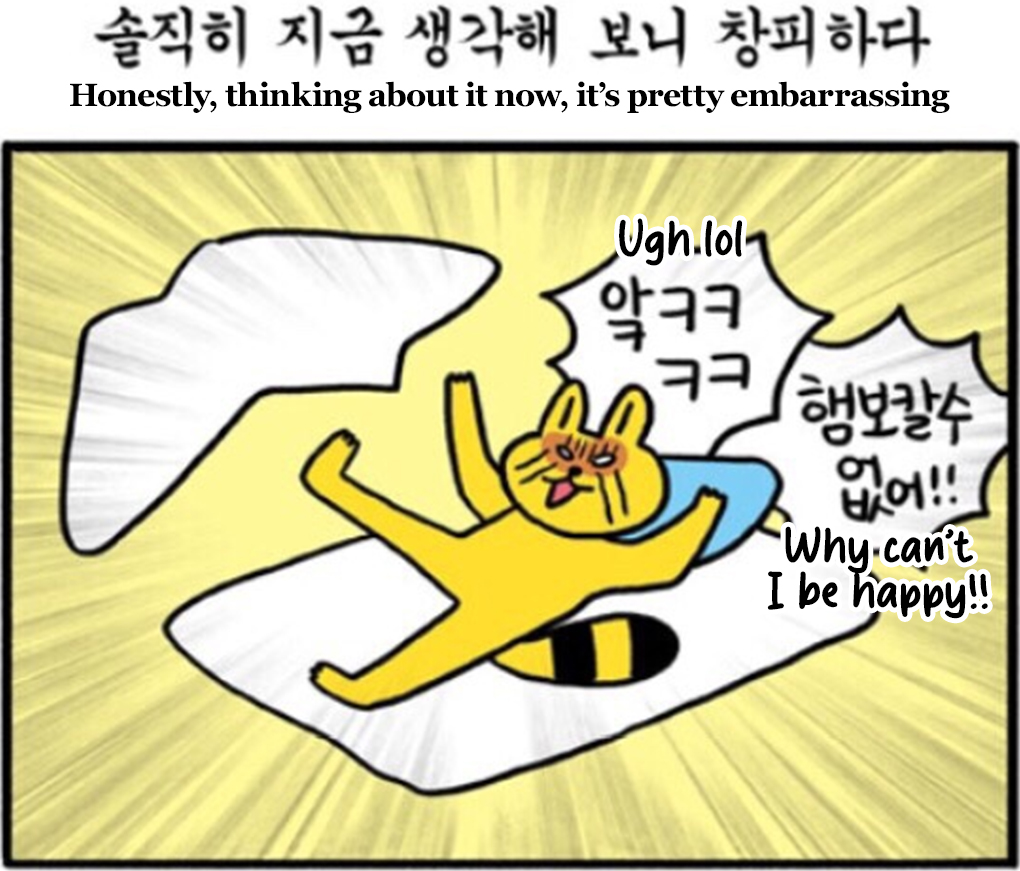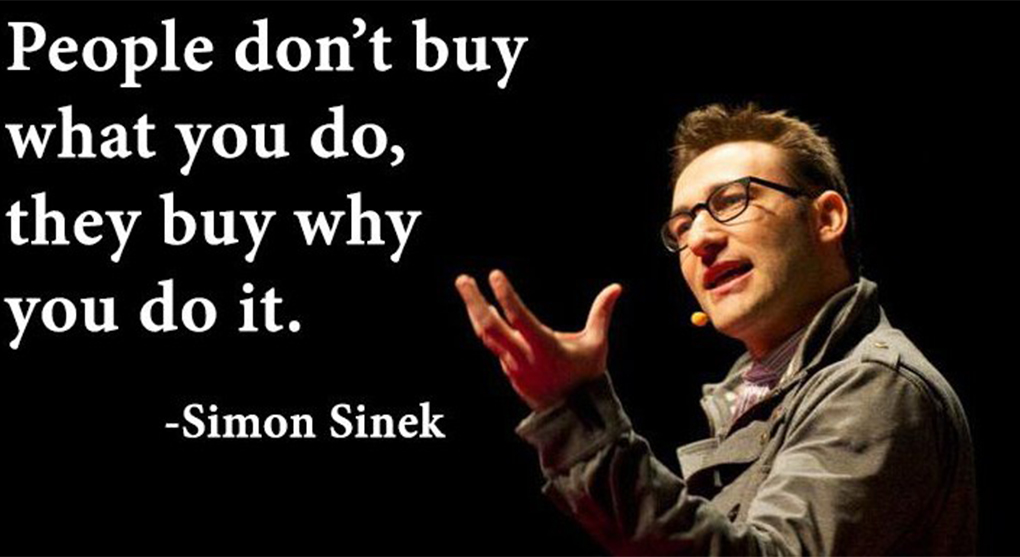

-
-
- 메일 공유
-
https://stories.amorepacific.com/en/amorepacafic-the-questions-researchers-must-never-forget
The Questions Researchers Must Never Forget
On Maintaining Authentic Thinking and How Not to Lose It #3

Columnist
Yongjoo Na R&I Center Innovation Management Office
#INTRO
Hello everyone. I’m Yongjoo Na from the R&I Innovation Management Center, joining you as a new columnist. I’ve always written about expanding and organizing my thoughts through personal experiences. Naturally, I’ve spent much time contemplating what makes me “me.” Through this opportunity, I’d like to share conversations with you, readers—sometimes from the perspective of an R&I researcher, other times as an ordinary colleague—going beyond my personal reflections. I hope my writing allows you to reconsider what makes you “you” and how to preserve that.
1 Wait, researchers have celebrities too?!
When we hear “celebrity,” we usually think of entertainers. Hard to believe, but researchers have their own celebrities too! You could say that physicists like Professor Sangwook Kim, who appears on various media shows, including programs like “The Dictionary Of Useless Knowledge,” are celebrities in their own right.

Source: tvN The Dictionary Of Useless Knowledge
What does a researcher celebrity look like?
But for researchers like me, the real celebrities are those who demonstrate exceptional capabilities in their fields through prolific research activities.
You can really spot the fame of these “hot” researchers when you attend academic conferences—regular gatherings where researchers typically present their findings. Many fellow researchers recognize them, greet them, and want to chat with them. I find myself getting a bit intimidated in their presence (aka feeling small). It’s hard to explain, but you can feel their aura, you know?
How do you approach renowned researchers to collaborate on something that could benefit our product development? Even though we’ve never met, I muster up the courage to approach them. That’s what business trips are for, right? The thing is, language barriers aren’t exactly easy to navigate. I recall a formal meeting where I prepared everything I wanted to say in English, filling up several pages. Since conference conversations are more casual encounters, I try to be natural by rehearsing my greeting multiple times in advance. I catch a celebrity researcher during a brief lull and attempt some networking: “Hi, I’m so-and-so from such-and-such place, and I’m really interested in your research. Your presentation was fascinating. Maybe we could chat more if we get the chance.” It’s the cherry on top when mentioning our company name gets a response like, “Oh, I know that company!” After exchanging business cards and breaking the ice, I feel much more at ease when sending that follow-up email later. I can start with something like, “Remember me? We met at...” Phew, it feels like I’ve accomplished everything I needed to on this business trip.
Honestly, the only things I lack compared to them are English skills and research prowess (?), yet I rarely approached them with confidence. Strange, isn’t it? Why was I feeling so intimidated?

Source: Vampire’s Kiss
Why on earth was I feeling intimidated?! Why!
I guess I was just being cautious. At that moment, I was also representing the company, and I probably thought I shouldn’t be disrespectful to these academic luminaries. Even though I know this wishy-washy attitude isn’t really me, I find myself acting differently far too often. Despite my respect and admiration for them as fellow researchers, I may act awkwardly and struggle to hold my shoulders up straight due to some narrow-minded preconceptions about how to approach these “celebrity researchers.”
2 Why do we want faces to become whiter?
During my second year at Amorepacific, I was fortunate to have the opportunity to attend an international academic conference. It was called The Pan American Society of Pigment Cell Research (PASPCR)—quite an impressive name! I was working on brightening research back in my rookie days. While we no longer use the term “whitening,” it wasn’t considered problematic twenty years ago.
I arrived solo in Cincinnati. The conference wouldn’t officially start until the next day, but there was a gala dinner the evening before. Being an introverted person with limited social skills, I was tired from the long journey and hungry, so I had no reason to skip it.
Apparently, another event was happening at the same venue. Not knowing this, I was busy grabbing food here and there when someone taller and bigger than me, with dark skin, struck up a conversation. Westerners naturally make small talk with strangers, so I didn’t think much of it.
Him: “What brings you here?”
Me: “Well... I’m here for a pigment research conference called PASPCR. Why do you ask?”
Him: “Sorry, but this isn’t the right place for that meeting. It’s probably over there.”
Me: “(Oops... embarrassed) Oh no, I must have gotten confused since it’s my first time. I’ll head over there.”
Him: “Hold on. A pigment research meeting? That’s interesting. What kind of work do you do?”
Me: “(Why is he stopping me when I’m trying to leave) Uh... well, I research making people’s skin whiter” (I probably used the word “whitening”)
Him: “Why? Why would you do that?”
Me: “People want their skin to look brighter and whiter. Especially Asians...”
His next question cut me off, and I couldn’t answer anymore.
“Natural skin color is beautiful as it is—why would anyone want a different skin color?”
'......?!’
It was probably a communication issue. The value and benefits we aim to provide to customers through our research are not about having a “different skin color,” as he put it. It was essentially my fault for not conveying the right nuance and meaning.
But one thing is clear: no matter how skilled I might have been at linguistic communication, my answer wouldn’t have been much different. I hadn’t deeply considered the meaning of my work. I had grown accustomed to mechanically answering questions about the given task—research on brightening skin—without giving much thought to its purpose or underlying reasons. Even considering my limited experience as a second-year employee, I can’t deny that I lacked reflection on the research topic and its significance. Looking back at how I answered that stranger’s question “thoughtlessly” feels embarrassing. It was truly my cringe moment.

Source: Artist Hyeoni / Olleh Webtoon “Our Joyful Life” excerpt
I’m still really embarrassed...
3 The problem isn’t the purpose—it’s my attitude toward the purpose
When I was assigned the brightening project (which was called whitening back then), it was “the team’s” work, something my senior assigned me, and “my first job at the company,” so I just wanted to work hard.
With limited experience in corporate work, I could receive research topics from someone else, but the approach to that work was now my responsibility. This is when you need to ask “why.”
When you ask fundamental questions like “Why do customers want brighter faces?” and ponder the answers, your research approach changes. It’s not just about finding one bio target that makes skin brighter. You first need to discover what customers’ real concerns look like. You also need to examine where the company finds business opportunities. Going through these processes to determine research direction sometimes leads to entirely different solutions—not bio targets at all. If you assume that, as a researcher, you can do whatever you want, or if you stick to predetermined directions, it’s hard to think of alternatives.
Simon Sinek says in “Start with Why”:
“People don’t buy what you do. People buy why you do it.”

Source: Pinterest
Why do you do this work?
When I first heard that, I wondered, “What does that mean?”
After working for a long time, this sentence hits differently.
Looking back at myself—getting intimidated in front of celebrity researchers or panicking at unexpected questions from strangers—I think my confidence was shaken because I lacked the question “Why am I doing this work?” Questions like “Why do I want to work with renowned professors?” and “Why do customers want brighter faces?” are keys that help researchers get to the essence of problems they really want to solve.
To avoid feeling intimidated in front of celebrities and to answer strangers’ unexpected questions with confidence, what we need to do is ultimately:
Never forget to ask, “Why are we doing this work?”
I think this might be the most essential attitude researchers need.
#OUTRO
So far, I’ve written three pieces about what makes me “authentically me” and how to maintain that while working. Next, I want to share thoughts about “our authentic selves” that I’ve observed through my colleagues’ behaviors, and what this has taught me about being true to myself. See you next time!
 |

Yongjoo Na |
|
|
Amorepacific
|
|
-
Like
0 -
Recommend
0 -
Thumbs up
0 -
Supporting
0 -
Want follow-up article
0


